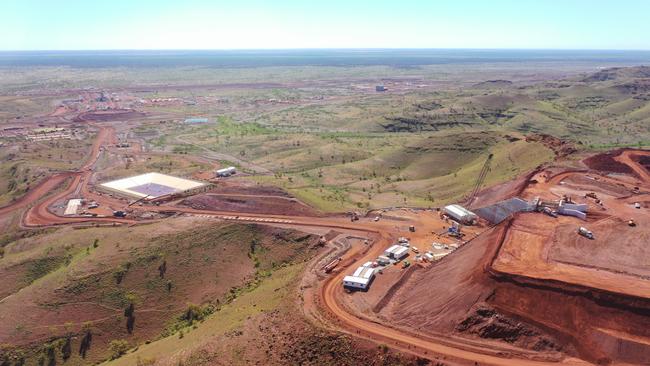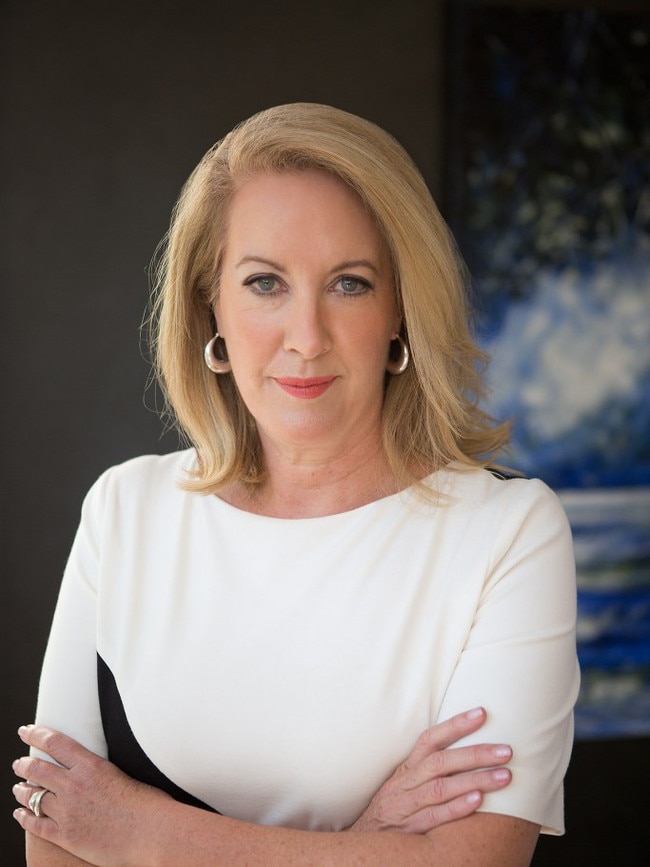Bullying, harassment and racism rife at Rio Tinto: review
The mining industry has been rocked by claims of rape and sexual harassment at remote sites, and now Rio Tinto has lifted the lid on its own internal problems.

Business
Don't miss out on the headlines from Business. Followed categories will be added to My News.
Almost half of Rio Tinto’s global workforce have been bullied in the workplace in the past five years, according to the results of a landmark report into the company’s internal culture which found that bullying was “normalised” in many workplaces.
More than 30 per cent of Indigenous employees that responded to the internal Rio review reported being confronted with racist behaviour in the workplace, and almost 30 per cent of women reported experiencing some form of sexual harassment.
The report was conducted by Australia’s former sex discrimination commissioner Elizabeth Broderick, and offers a damning summary of sexual discrimination, bullying and racism in the mining industry.
The results of the internal culture review will make grim reading for the 47,500 Rio Tinto staff scattered around the globe. The report found that 53.2 per cent of female workers reported bullying behaviour while working for Rio, with 28 per cent said they had experience sexual harassment.
Ms Broderick said her team had received 21 confidential claims from Rio employees reporting they had been the victims of sexual assault in the workplace.
The revelations in the Rio review – one of the most comprehensive ever commissioned in the industry, Ms Brokerick said – come after a horror year in which the sector was rocked by claims it comprehensively failed to prevent sexual assaults and harassment on remote mine sites.
A West Australian parliamentary inquiry into sexual misconduct in the mining sector heard last year that more than 257 complaints of sexual assault and harassment had been lodged through the internal systems of WA mining companies – including BHP, Rio, and Fortescue Metals Group – in the last five years.

The problems at Rio extend far beyond sexual harassment, according to the review, which said workers had told researchers they were afraid to make formal complaints for fear of retribution.
“Participants commented on a culture of silence, which employees perceived as discouraging reporting through repercussions for those who raised concerns,” the report said.
Just over 46 per cent of male workers said they had been bullied – with more than half of workers at the company’s iron ore division reporting bullying incidents. “A consistent theme was that, in many workplaces across Rio Tinto, bullying is normalised,” the report says.
“Employees described expectations that they should ‘toughen up’ for life in a global miner.”
Rio chief executive Jakob Stausholm commissioned the review in March 2021, shortly after reshuffling the decks of the company’s senior leadership in an effort to reset the mining giant’s internal culture after its international reputation was wrecked by the Juukan Gorge debacle.
Mr Stausholm said on Tuesday he felt “shame and regret” on reading the findings of the report.
“The findings of this report are deeply disturbing to me and should be to everyone who reads them. I offer my heartfelt apology to every team member, past or present, who has suffered as a result of these behaviours. This is not the kind of company we want to be,” he said.

Mr Stausholm told The Australian he was determined to build a more “humane” management culture at Rio in the wake of the report.
“I really feel Rio Tinto is a wonderful company with some amazing people. But we do need to work towards having what I would call a more humane organisation and a more humane culture. It’s probably some of the hierarchical elements standing in the way of addressing the issues that are coming out here,” he said.
“But there is no magic bullet. Unfortunately, it’s not something that you can say from tomorrow onwards, the issue is gone. Cultural change takes time. But we are prepared to take the time it takes – and in a systemic way – to address the issues.”
More than 10,300 Rio employees responded to the written part of the survey – about 21.7 per cent of the company’s total workforce.
Ms Broderick and her staff also conducted 109 group meetings with Rio staff and contractors, considered 138 confidential written submissions and met with 85 people confidentially.
While the report offers a damning summary of Rio internal culture, Ms Broderick said Rio’s willingness to make the report public offered hope for change within the company.
Ms Broderick’s report noted that she had also received considerable positive feedback about the company’s recent attempts to address problems in the workplace, particularly after Mr Stausholm took the job at the company.
Rio said it would adopt all 26 recommendations in the report, which include the establishment of an independent unit to encourage staff to report incidents.



